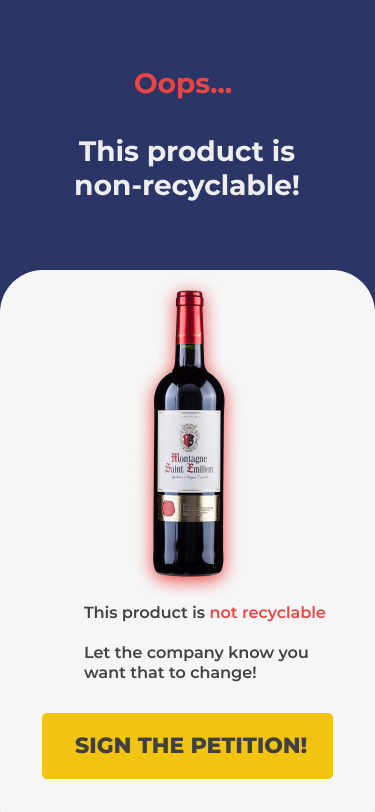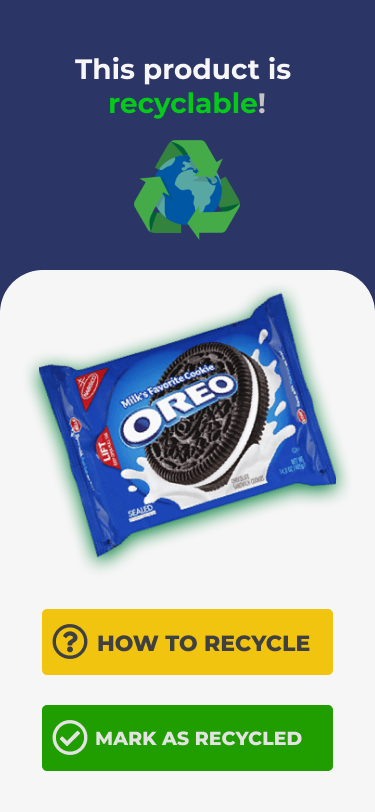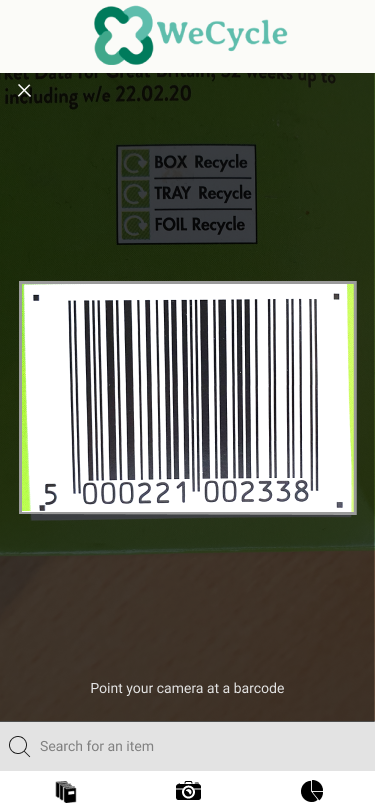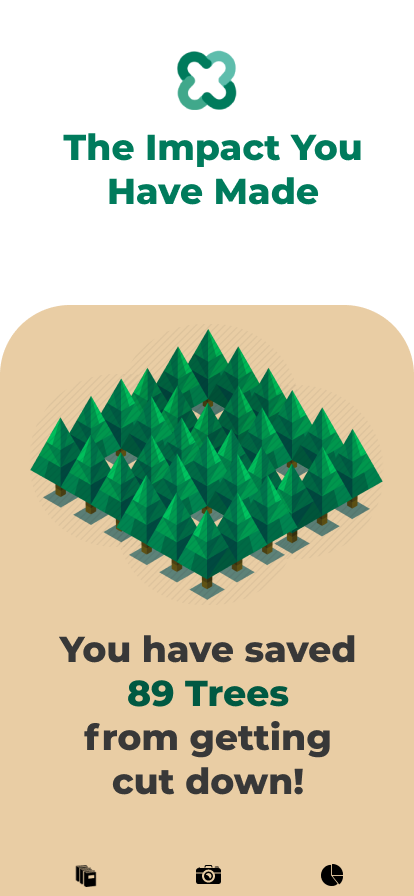
WeCycle
Develop: Advocacy tools for climate action for NGOs.
WeCycle is a recycling app envisioned by UCL Computer Science students as a way of advocating the use of recyclable plastics to the general public. The initial idea behind WeCycle was to develop an app that was capable of providing full information to the people about the types of product and packaging that they are purchasing.
Why WeCycle is needed
The environmental consequence of plastic production is substantial. Yet despite global movements to limit and curb plastic production, its growth continues exponentially. Plastic production is estimated to have an influence on 700 different wildlife species (REF 1), including endangered species. It is also known that nearly every species of seabird that exists consumes plastics that have been improperly disposed of in the oceans. Micro-plastics are becoming increasingly present in the oceans (and now in our seafood!) due to insufficient recycling practises among all nations, including developed nations.
Plastic production and incineration, ignoring all of the environmental issues that are caused during their lifetime, is estimated cause emissions amounting to "56 gigatons of carbon — almost 50 times the annual emissions of all of the coal power plants in the U.S. — between now and 2050" - Christopher Joyce at NPR (REF: 2).
It is clear that in this pivotal moment for the future of the earth as we know it, that we start taking more responsibility for the production and consumption habits that we have.
At WeCycle we believe that in this critical moment, products should by default be recyclable, particularly mass market products. We don't believe it is acceptable anymore to allow corporations to neglect this responsibility "temporarily" in search of greater profit margins or to delay it to a later date. Instead, we want the consumer to know that the power is in the hands of the people, and that they do not have to accept the irresponsible environmental practises of the companies that serve them or have any issue doing their part in recycling themselves.
Initial Ideas
In its earliest stages, WeCycle was imagined as a way for NGOs to engage with members of the public who are sensitive to climate issues and provide a platform for them to have an impact on the socially irresponsible production and consumption practises of big corporations.
The means by which this would be achieved was to provide a platform to collect and create petitions against corporations engaging in environmental malpractice. In this situation, users who downloaded the app would be able to create and easily add themselves to existing petitions against such corporations. Ideally, user awareness of petitions against these corporations will encourage the user to boycott companies that had listed petitions against them, creating an incentive for companies to change negative media perceptions of themselves by changing the way that they produce/package products.


Alternatives to this idea included the gamification of recycling, whereby users would be able to scan an item's barcode and the app would direct them to the nearest recycling facility available to the user. Once the user had moved to this location, the user would be able to scan the barcode of the products/packaging that they were going to recycle and mark them as recycled on the app, which in turn provided additional points in a gamified environment.


The app would have a leader board, showing both how well you were doing individually and at a constituency level.
Final Idea
After these ideas had been proposed, we concluded that a combination of these ideas gave the the best experience and was likeliest to have an influence on the prevalence of recyclable packaging among mass-market products.
Our final proposal for the app was to merge the recycling gamification with a few new tools also based on existing barcode scanning functionality. Here, the user would be able to open the app in stores, scan products that they are considering purchasing and the app will display whether or not the product is recyclable (based on the results of a query to our product databases). If the product is recyclable, the app will give the option of displaying the nearest eligible recycling facility to the user (allowing the user to also use this scanning function at home). If not, the app will give the user the option of using their account details to quickly and easily either create or add themselves to a petition against the producer of the scanned product that is not using recyclable materials.
The user is able to mark scanned products as recycled, which results in additional points in our gamified environment (which we decided to be a virtual garden, whereby each additional x recycled items results in a corresponding y trees planted in the garden and z in-game points are allocated to the user). User statistics and performances will be stored, and there will be leader boards created at both an individual and constituency-level, to see who and where generally are doing a better job of being mindful and active about recycling.
We hope that these two functionalities shall inspire and improve the extent to which users are able to take action and make an impact on the scale at which we recycle and recyclable materials are used!